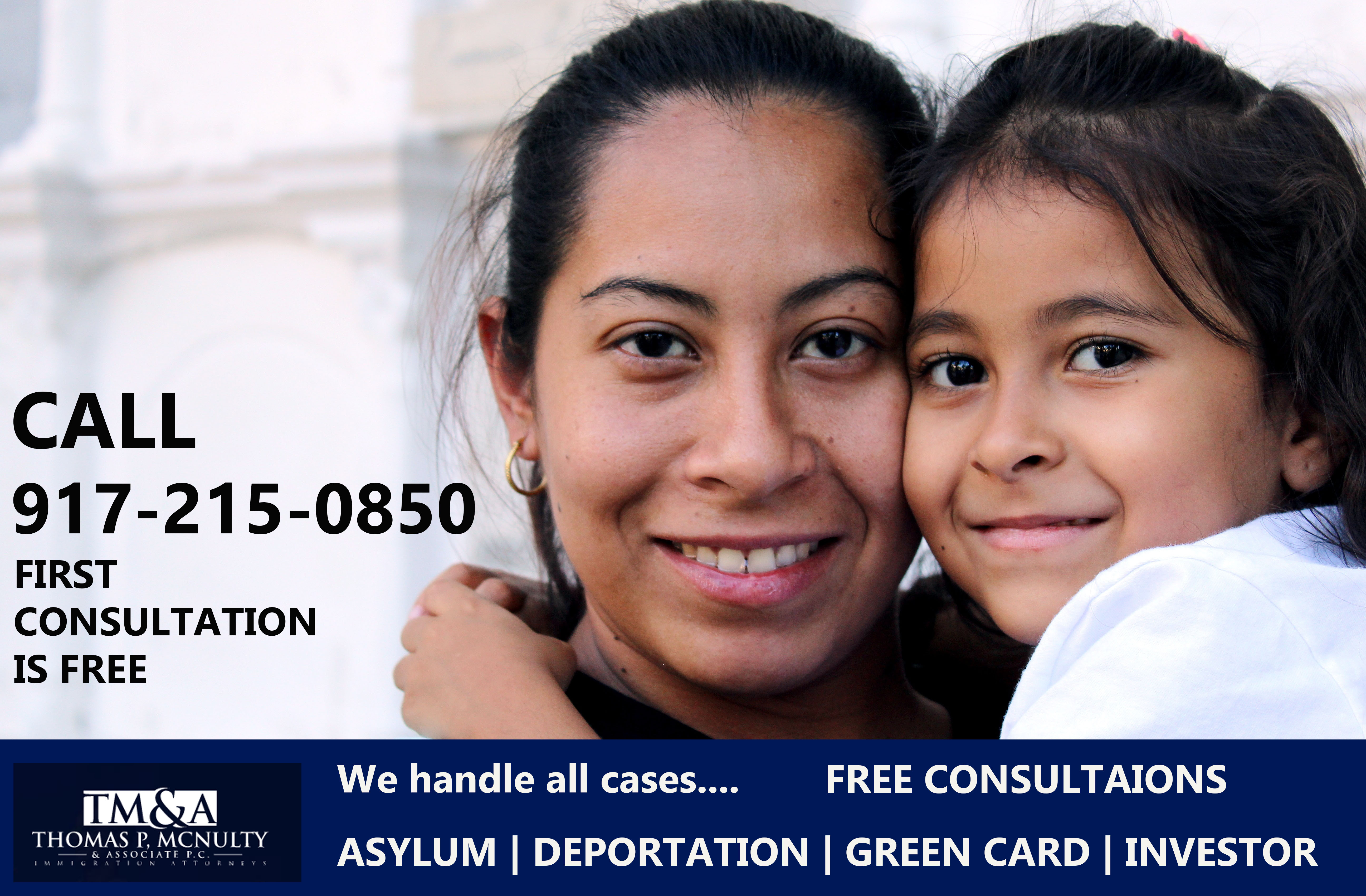Deportation Defence
A removal (deportation) proceeding is primarily concerned with determining the alien's right, or lack of it, to remain in the U.S. after he or she has already been admitted into the U.S.by immigration officials. This is due to the fact that because the U.S.C.I.S.contends that the person has committed some acts which violate certain immigration laws or the terms upon which the person had been granted a visa, and has initiated a move to send that person back to his or her home country. Therefore, deportation affects people who are already in the U.S., either legally or illegally, by forcing them to leave.

However, there are legal defenses available that might make it possible to avoid being removed (deported) -eg-
(a) Adjustment of Status under the Immigration & Nationality Act Section 245, under certain conditions, which is the process by which a non-immigrant changes his or her status to an immigrant status, ie. to the status of lawful permanent resident of the U.S. Certain legal requirements and restrictions are imposed upon the non-immigrant with respect to being permitted to adjust his or her status. A deportable alien who is the parent, spouse, widow or child of a U.S.citizen may be eligible to apply to the Judge to adjust his or her status to that of lawful permanent resident.
(b) Asylum application, which protects under removal proceedings who has fled persecution or fear future persecution in his or her home country, which allows legal status in the U.S., work permit and green card.
(c) Cancellation of Removal,for persons without green cards, if they can prove 10 years' continuous physical presence in the U.S., and can also show that being removed would cause exceptional and extremely unusual hardship to a spouse, parent or child who is a U.S.citizen or legal permanent resident.
(d) Deferred Action. This is an agreement by the U.S government to put the case on hold, to neither give legal status or deport the person.
(e) Cancellation under the Violence Against Women Act (VAWA). The applicant must show that he or she has been battered or subjected to extreme cruelty by a “qualifying relative” - usually a spouse who is a U.S.citizen or legal permanent resident, and has resided in the U.S. for a minimum period of three years and is of good moral character.
(f) Protection under the Convention Against Torture Act (CAT). Protection is available only if it is more likely than not that the home country's government, or some person or group that the government is unable or unwilling to control, will torture this person.
(g) Hardship Waiver. A person who is being deported from the U.S.for certain criminal grounds may be eligible for a waiver under immigration law if this would result in "extreme hardship" to his or her U.S.citizen or Legal Permanent Resident spouse, parents or children. Proof of this extreme hardship must be submitted.
(h) Suspension of Deportation. The applicant may apply for this relief if he or she is able to fulfill the following three conditions-
1. Must have been continuously present ion the U.S.for at least seven years. Absences which are brief, casual and innocent do not interrupt the continuity of physical presence.
2. Must be a person of good moral character.
3. It must be an extreme hardship upon the applicant, spouse, children or parents who are U.S.citizens or Legal Permanent Residents if the deportation were to proceed.
(i) Citizenship. A person who can prove that he or she is already a U.S.citizen, or has fulfilled the requirements for naturalization, may request that the case be either terminated or held in abeyance pending the result of the citizenship application.
(j) Registry. This is similar to amnesty, and is available to persons who have resided continuously in the U.S.since prior to January 1, 1972 who are persons of good moral character and are not deportable for serious crimes, and who are not ineligible to apply for citizenship.
(k) Voluntary Departure. This offers a way to leave the U.S.without blemishing the person’s immigration record with a past order of removal, which can make returning to the U.S. harder. This enables the person to eventually return to the U.S. at some time in the future, usually after five years.
The above defenses are not available to persons with serious criminal convictions, such a “aggravated felonies” except in the event that the applicant is already determined to be a U.S.citizen, such as a”derivative citizen”
